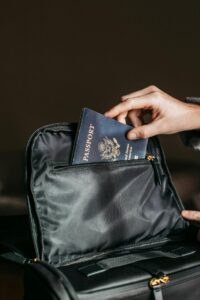VAWA is known to provide a lifeline for victims of abuse by giving them an avenue to escape their oppressors. However, securing VAWA immigration and other benefits may prove to be more difficult than it seems. In fact, statistics show that more than a quarter of VAWA self-petitions get denied, and that can be a source of concern.
However, there are reasons for these VAWA self-petition denials, and this article will highlight the most prominent of them.
7 Reasons Your VAWA Self-Petition Can Be Denied:
You Don’t Have a Qualifying Relationship
The first and most important criteria for VAWA is meeting the qualification requirements. Not every abuse victim can apply for VAWA, and not every foreigner can benefit from this immigration option. So, the first step to ensure a successful VAWA self-petition is to make sure you are qualified.
To qualify for VAWA and its benefits, you must be directly related to an abusive US citizen or lawful permanent resident. This means only spouses, children, and parents of the abuser can apply for VAWA. Secondly, you must have suffered abuse at the hands of your abusive family member who must be a US citizen or Green Card holder.
Incorrect Forms or Applications
The immigration laws and processes can be broad and complicated, creating room for confusion and silly mistakes. One of which is filling in and submitting the wrong form, and this is often one of the top reasons for VAWA self-petition fails. The corresponding forms for this purpose are the Form i-360 for VAWA self-petition, and the Form i-485 for Green Card application. If you pick up or submit any other forms for this purpose instead of these two, then your petition will be nullified.
Incorrect Submission Platform
Picking out the correct form is but the first step to securing a successful VAWA self-petition. There are still a fair few steps to get through, including filling out the forms and submitting them through the appropriate platforms.
Firstly, filling out the forms requires you to read and understand the instructions carefully. Luckily, someone else can help you with this process if you’re not capable of doing do yourself. However, this agreement must be clearly stated on the form, in the section corresponding sections. Next, you must submit the forms through the correct VAWA submission platforms to ensure they get to the right authorities. Failure to fill the forms correctly or submit them through the right platform almost means certain denial.
Inadequate Evidence
Most times, the success of your VAWA self-petition can be most reliant on how much evidence you can provide. That means the more the evidence, the more your chances of getting your application over the line. Similarly, if you don’t have enough evidence to back up your claim, then your chances will be affected. Here are some of the documents and evidence you’ll be required to submit along with your VAWA application.
- Proof of qualifying relationship with the abuser
- Proof that the abuser is a US citizen or lawful permanent resident
- Proof of cohabitation with the abuser at any point
- Proof that you were actually abused
- Proof that you entered into the relationship in good faith (for abused spouse only)
Failure to provide all or any of these documents may either lead to a significant delay in approval or a VAWA denial in worse-case scenarios.
Falsified Evidence or Information Forgery
The legitimacy of a VAWA self-petition is often dependent on the ample evidence provided. However, it is not often very easy to come up with all the necessary evidence, and some petitioners tend to resort to forgery. Luckily, the USCIS has specially trained agents who carry out investigations on every petition to determine their legitimacy.
If a petitioner is found to have forged or provided fake evidence, the necessary actions will be taken. Depending on the severity of the offense, the petitioner may be given a deadline to submit the original documents in the best-case scenario. However, this is only for when the falsification is discovered to be a clear and obvious error. Other times, falsification constitutes a certain denial and a potential criminal investigation. If petitioners are found to have forged this evidence on purpose to commit VAWA fraud, then they face potential punishments that may include instant removal.
Bad Moral Conduct or Sketchy Criminal Records
Another requirement for VAWA self-petition is a good moral character, and it’s easily one of the basics. This means that failure to meet this particular requirement means you risk a denial on your VAWA application. However, the context of this rule has always been open for different interpretations, leaving many petitioners unclear, which in turn leads to more VAWA denials.
For clarity, the USCIS defines “good moral conduct” as a measure of character according to the standards of an average citizen in the area of residence of the petitioner. Petitioners are also required to have a clean criminal record or risk being denied.
Not Hiring a Lawyer
Generally, all the conditions for denial listed above can all fit into one giant mistake, and that’s not hiring a lawyer. The VAWA application process is a complicated one that you can’t afford to go into without legal guidance. From the unset, having a VAWA lawyer to explain the whole concept to you can make a world of difference. But beyond that, nothing beats having an experienced professional by your side to guide you through each step of the way.
The Coleman Law Group Can Help You
Well, while you really shouldn’t venture into something as complex as VAWA without a lawyer, it’s also crucial that you go for the best quality you can get. Luckily you can always count on Coleman Law Group to come through for you.



